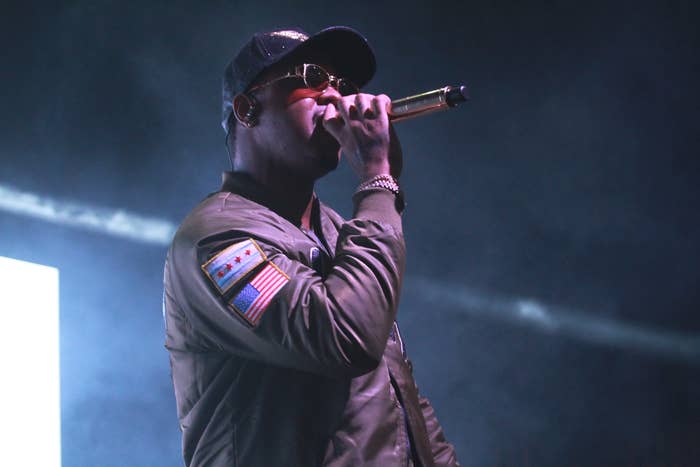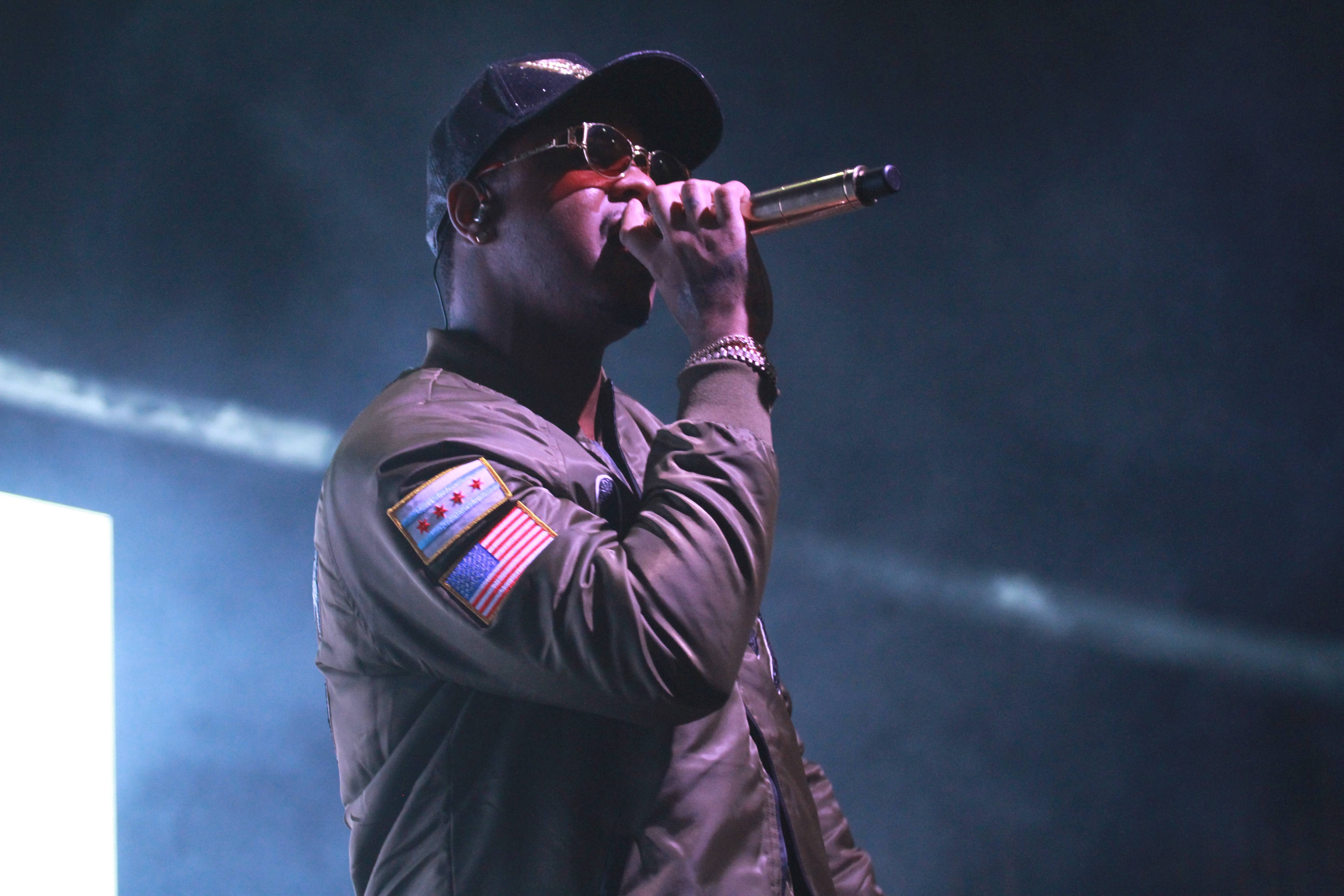
The current R&B landscape is populated by conceptual synesthetes—artists who approach media omnipresent when it is time to drop their music to the point that their mononyms are shorthand for their aesthetic: Beyoncé, Frank, twigs, Weeknd, Miguel.
But Jeremih? Jeremih is comparatively a cipher. His shows, themselves rare, lack ornamentation, their lone indulgence his stripped-down version of “Birthday Sex.” His videos, even for bona-fide smashes, are rarer still. Jeremih has never been hidden, per se, having been featured on four platinum singles to accompany his five multi-platinum tracks as the lead, but to engage with his full-lengths feels like whispering in a secret language. Five years ago, he released the Rosetta Stone: Late Nights with Jeremih.
In a bygone era, free music was free and not just free because you forgot that you’re paying for a streaming service. For new artists, this served as a conduit to reach as many people as possible, but for established (implying label-tied) artists, it meant experimental freedom. After two albums that each produced a Billboard number-four single, Jeremih was a known quantity. But R&B was becoming more viscous than ever before, and the vision of an auteur, even when given away on the internet, was quickly established as more important than dropping a few glossy, radio-centric R&B songs.
“[THE] LATE NIGHTS PROJECT MEANS EVERYTHING...IT'S MY BRAND, IT'S REALLY MY LIFESTYLE WHEN IT COMES TO RECORDING." – JEREMIH
It wasn’t that Jeremih and All About You, his first two albums, did not hint at such a vision—see the airy title track of the latter as a clear evolution of his albatross “Birthday Sex”—rather, that they contained half-measures of singularity. This confluence of factors birthed Late Nights with Jeremih and set the template for his much-loved releases that followed.
Two years before Future’s reinvention on Monster began with a goosebump-inducing pastiche of samples discussing how he got where he was, Jeremih opened up Late Nights with Jeremih with a lower-stakes skit of screaming fans; but the repetitive “Jeremih, Jeremih” was no less a statement: we were about to get his full self.
This as much was confirmed by Jeremih, who answered some questions about the mixtape: “[The] Late Nights project means everything. I never knew five years ago that it would become what it became. It's my brand, it's really my lifestyle when it comes to recording.” His releases-as-diary approach extended to one of his aesthetic peaks, Late Nights: The Album closer “Paradise.” As he told The Fader, the song was inspired by his life while living in Malibu, and while its lyrical content is similar to the mixtape, the production backing it is, too. “Paradise” sports an acoustic guitar simultaneously conveying a wooziness from the night before and anticipation of the night to come, though the real star are Jeremih’s vocals as he narrates the feeling of, well, feeling. That song, in its spare honesty, is an evolution of the mixtape’s centerpiece, “Late Nights.”
An elongated, warm string ushers in the “toast to overload and overdose,” as Jeremih sings. He tells us, “['Late Nights'] was actually a beat that I produced. I did that in my condo on the South Loop of Chicago. It was really just three instruments, a string, a sample, a kick, and a clap, everything else was pretty much vocals from my mouth.” That he helmed every aspect of the song is a poetic revelation; that he began his surprise release concert for Late Nights: The Album at S.O.B.’s with the song shows just how much it means to him.
Surrounding the track are fifteen other tracks, a skit, and an interlude, all of which serve as touchstones for his vision. There’s a song celebrating his beloved Chicago’s area codes (“773 Love”) and then a callback to that very hook less than twenty minutes later on the smoldering, lives-up-to-its-title “Rated R (The Masterpiece).” An ear for progressive beats is shown with the jangly “Girls Go Wild,” what “Don’t Tell ‘Em” would have sounded like had it been released two years earlier. Fruitful pairings with superstars 2 Chainz and Gucci Mane, among other rap features, exemplify their organic origins: “I think for the love of music everybody just got on the record,” he notes.
Jeremih, in turn, synthesized these approaches and created a series unique in R&B today for its unwavering love of life.
Among his contemporaries, Jeremih’s (current) trilogy began after the two most well-known ones completed—The Weeknd’sTrilogy and Miguel’s Art Dealer Chic. The former magnetized the industry towards his dark, drug-fueled sound, whereas the latter showcased how the artist could fit in with the landscape as is. Jeremih, in turn, synthesized these approaches and created a series unique in R&B today for its unwavering love of life. It’s hedonistic, sure, but only in a way that allows for real intimacy to still flourish. It’s materialistic, yes, but only after accounting for a true appreciation of what you have. It’s exclusive, but only because you need to know the secret language requisite for experiencing all that the Late Nights world has to offer. “Maybe this is the moment,” he sings on closing track “Letter to Fans.”
I’ll admit to spending inordinate amounts of time watching what live performances of his exist on YouTube, and the most telling of these is his performance of “Oui” at the Pitchfork Festival last year. On cue, the crowd erupts into the backing “Ahh yeah, ahh yeah, ahh yeah.” They scream when he calls out their shared hometown. He leaves the stage to descend to the people below, allowing them to engulf him as much as security would permit. No matter what, he never stops singing. All those late nights for a moment like this.

